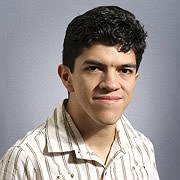Neurosymbolic Reasoning and the Third Wave of Program Synthesis
Over the past fifteen years, the field of program synthesis has made significant strides thanks to the development of powerful search techniques that leveraged advances in our ability to reason about programs. The growing ambition of the field, however, has demonstrated the limitations of this approach in terms of the complexity of the code you can generate from it.
The growing power of machine learning, however, has opened up new opportunities for a new generation of program synthesis techniques. In this talk, I will describe how machine learning can serve to enhance the power of more traditional synthesis techniques, but without necessarily replacing them. Instead, new techniques have emerged that combine our ability to reason symbolically about programs with our ability to learn complex distributions from data and to assign meaning to unstructured inputs such as hand drawn images or natural language text.
Armando Solar-Lezama is an associate professor at MIT where he leads the Computer Aided Programming Group. His research interests include software synthesis and its applications in diverse areas such as high-performance computing, information flow security and probabilistic programming.
Tue 16 JunDisplayed time zone: Pacific Time (US & Canada) change
15:30 - 17:00 | |||
15:30 30mTalk | Neurosymbolic Reasoning and the Third Wave of Program Synthesis MAPL Armando Solar-Lezama Massachusetts Institute of Technology, USA | ||
16:00 30mTalk | Learning Quantitative Representation Synthesis MAPL Mayur Patil University of California, Riverside, Farzin Houshmand University of California, Riverside, Mohsen Lesani University of California, Riverside | ||
16:30 30mTalk | Towards Human-Like Program Synthesis MAPL Rishabh Singh Google Brain | ||
